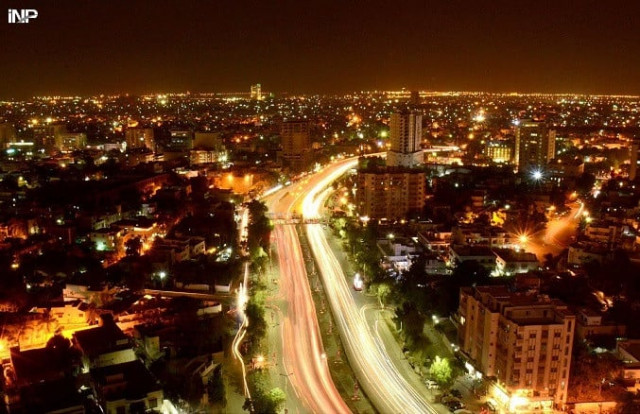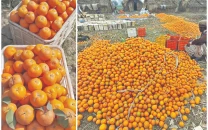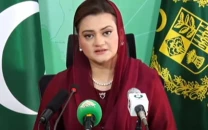Uncertainty limits policy options for govt: IPI
Report sheds light on possible economic, political, security outlook for Pakistan in 2022

Uncertainty in domestic politics and regional situation is constraining Pakistan’s policy options as the national leadership navigates rough waters of politics, economy, and security during the defining year of 2022.
This was the conclusion of the annual report, ‘Pakistan Outlook 2022 – Politics, Economy and Security’ published by Islamabad Policy Institute (IPI), a local think-tank. The current year has been described as a defining one because of the impending change in military’s command and it being Pakistan Tehreek-e-Insaaf-led government’s last full year in office during the present tenure.
The report has assessed Pakistan’s performance in key areas during 2021, analysed emerging trends, and projected likely direction during 2022 while looking at potential challenges complicating the policy landscape. The report provides an in-depth analysis and outlook for 2022 on pressing issues in diverse subjects such as the strategic environment, foreign policy, internal security, domestic politics, economy, public health, and energy.
Eminent experts including former foreign secretary Salman Bashir, former defence secretary Lt Gen Asif Yasin Malik, University of Health Sciences Vice Chancellor Dr Javed Akram, former member of the Oil and Gas Regulatory Authority Dr Ilyas Fazil, power sector expert Arooj Asghar, journalist Raza Rumi, security analyst Safdar Sial, and Faran Rizvi have contributed to the report.
As per the findings of the report, “uncertainty will mark the political landscape of the country” during 2022, when a new army chief will have to be appointed by year-end.
Rising inflation and other political challenges will provide the opposition an opportunity to “expand its space and visibility”. Other stakeholders, the report forecasts, would be compelled to “demonstrate visible neutrality”.
Meanwhile, the external environment will continue to remain challenging due to complex regional and international trends that will influence Islamabad’s foreign policy options. The report highlighted “deteriorating economy, uncertainty in Afghanistan, a rising tide of extremism in India and Delhi’s hardline on normalisation with Pakistan, extreme repression by Indian troops in Occupied Kashmir, and strategic US-China rivalry” as factors that would impinge on Pakistan’s foreign policy options.
Ambassador Salman Bashir, former foreign secretary, in his article has stressed the need for Pakistan to avoid getting entangled in camp politics and pursue improvement of relations with Washington while enhancing cooperation with Moscow and deepening existing strategic and economic engagement with Beijing to balance the relations.
Read The National Security Policy: Where is the economic security?
Lt. Gen Asif Yasin Malik in his contribution analysed the change in Afghanistan and its attendant strategic impact. The report underscores that while the regional strategic environment has improved for Pakistan, Islamabad now would have to deftly manage its regional engagements, particularly, with Central Asian Republics and Iran.
The regional situation, especially relations with Afghanistan, will continue to shape the internal security dynamics of the country.
Safdar Sial, in his essay, has underscored that the last half of 2021, witnessed a major uptick in violence across the country. The report forecasts that the internal security situation would remain challenging during 2022, as militancy could increase and cross-border terrorism and border security will continue to remain under pressure.
In the economic realm, financial markets expert Faran Rizvi has unpacked Pakistan’s economic and fiscal policy landscape. Economic challenges, he predicts, are likely to increase. The report forecasts that the economy will grow by 4.8 per cent in FY22. Moreover, despite growth in exports, the current account deficit will increase on account of the import bills for petroleum and food products that are likely to almost treble. Fuel-induced inflation and increase in power tariffs would also increase the cost of production for the industrial sector.
IPI Senior Fellow Dr Ilyas Fazil has analysed the energy security dynamics and called for prioritising the utilisation of local furnace oil to meet power sector’s demand and addressing the issue of high electricity tariffs. The report forecasts that 2022 will be a challenging year for the oil industry as international oil prices will remain high and the impact of PKR-USD parity will be felt strongly across the supply chain.
Dr Javed Akram notes that while newer variants of COVID-19 are emerging, they are less potent than their predecessors. However, he emphasised on the need for not lowering the guard as some variant may “outflank the immunity provided by vaccines.”
Dr Akram has, moreover, cautioned that while Pakistan has passed through a relatively tougher phase of the pandemic, it is still not adequately prepared to deal with epidemics or pandemics in the future. He also called for paying attention to the growing burden of non-communicable diseases that are overstraining the healthcare system.
Published in The Express Tribune, February 1st, 2022.



















COMMENTS
Comments are moderated and generally will be posted if they are on-topic and not abusive.
For more information, please see our Comments FAQ